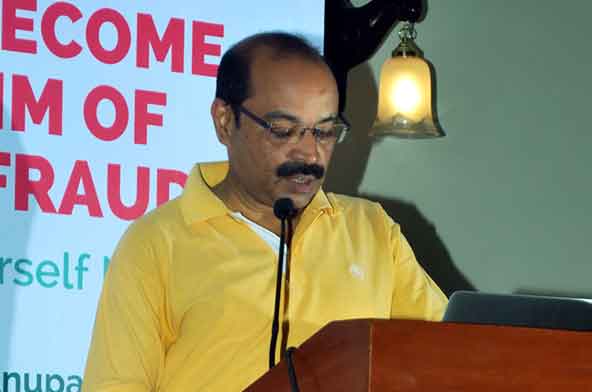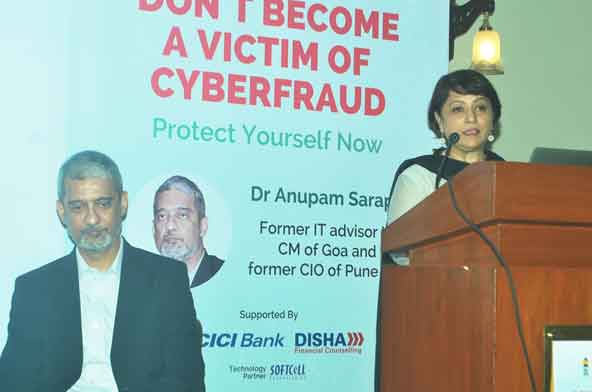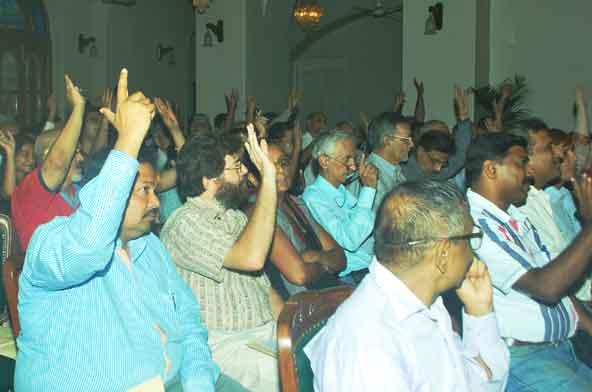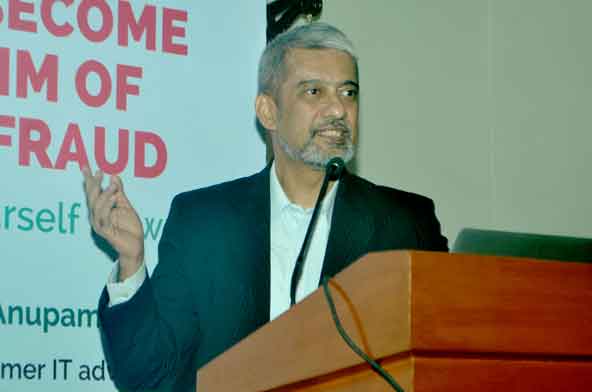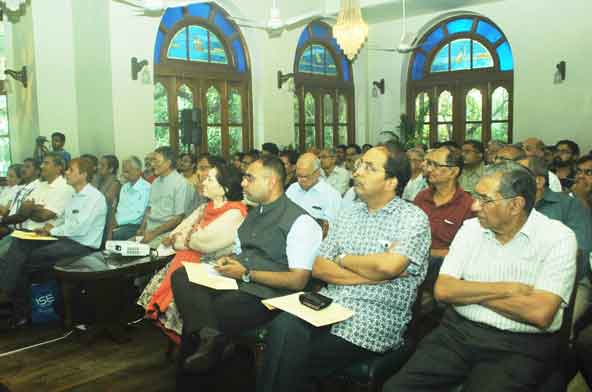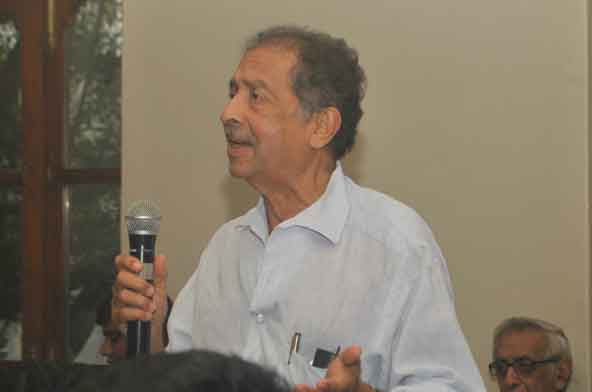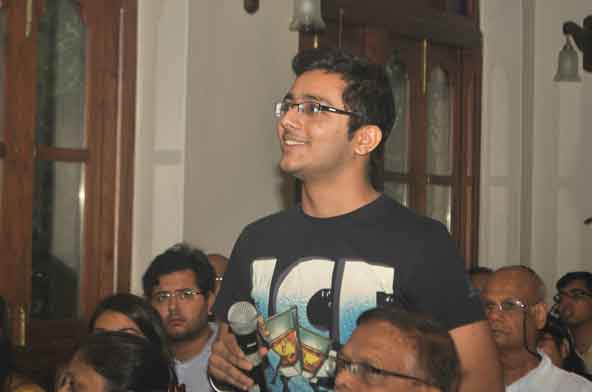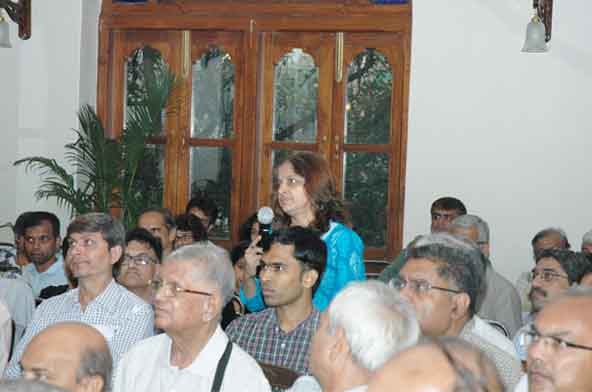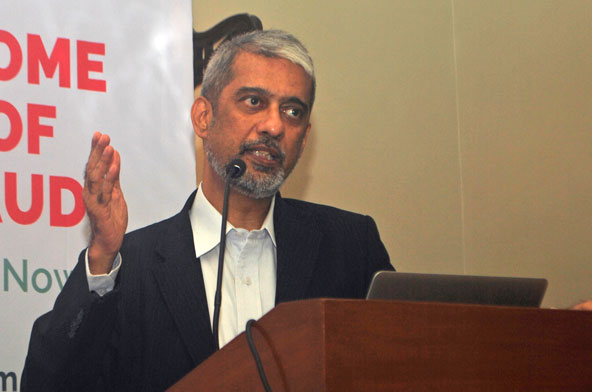
Who is the custodian of your digital assets? Do you have a strategy to de-risk and protect yourself from modern messiahs promising the wonders of the digital age? Is it really worth the risk to have your smartphone run your life? These were the questions raised and answered by Dr Anupam Saraph at a seminar organised by Moneylife Foundation in Mumbai on “Don’t Become a Victim of Cyber fraud: Protect Yourself Now”.
Dr Saraph, former IT advisor to Chief Minister of Goa, Mr Manohar Parrikar and former CIO of Pune City, said one needs to understand the risks associated with transactions in cyber space; implications of data leaks and privacy breaches through social media or email transactions and your remedies.
“There is no escape from the cyber space and risks associated with it. Therefore, we need to have a strategy to minimise our risks. This includes, protection from obsolescence, protection from unfair practices, protecting identity and digital assets,” he said.
Dr Saraph also explained with several examples, factors that affect our digital experience, like net-neutrality, privacy policies and legal terms of use, audit-ability and digital culture.
Talking about net-neutrality, he said, when the net-neutrality was threatened in the US, President Barack Obama himself took a stand and did all he could to ensure net-neutrality was not compromised. Violation of net-neutrality is looting India of its entrepreneurship, innovation and digital future. It is excluding India from the internet.
Net-neutrality allows fair, just, unrestricted and non-monopolised access to the internet. The access is agnostic to the media and content consumed by its customers across the network. “Display of ‘internet’ in the domain name (internet.org, for example) when the organisation neither owns nor administers the internet is unfair trade practice. Offering websites knowing they are not the internet or slicing up the internet based on content or media, knowing that such does not comply with the standards placed by the World Wide Web (WWW) Foundation or the founder of the WWW, Tim Berners Lee, is also unfair trade practice. Refusing to sell the full internet knowing well that such refusal will raise the cost of internet packages is unfair trade practice,” Dr Saraph said.
Talking about privacy policy and other legal terms of use, he said, there needs to be a right to opt out and the user should be able to prevent sharing her data with third parties. Dr Saraph said, “Users need to be provided with the right to be forgotten besides policies to safeguard them from unauthorised access.”
“The systems or websites should have audit-ability, which will have ability to track back a transaction to a person. This will also ensure transacting parties does not deny transaction,” he added.
Dr Saraph, who had worked with Malcolm Slesser et al. in Edinburgh in the late 1990s to develop the ECCO modelling paradigm for assessing the economic and energy potentials of nations and regions, said, “To protect yourself from obsolescence, you need to use open source formats to store digital assets, upgrade backups to current media and avoid using digital platforms that evolve fast.”
“Protection from unfair practices can be obtained by choosing to opt-out whenever possible, and avoiding digital platforms that lack privacy protection and have unfair terms of use,” he added.
Talking on protecting identity online, Dr Saraph, said, “Opt-out wherever a single ID will run your life, avoid digital platforms that lack privacy and have no human help and most important, whenever possible use a two-step authentication.”
Cyber-crime and privacy breach in India has been growing exponentially every few months. In this scenario, remember your identity, assets and existence are at stake and you only are responsible for your security. So next time you are online, be vigilant and try to minimise your risks, Dr Saraph concluded.


